Trey'von Knowles's Blog, page 14
May 31, 2025
Melanin 666 Theory
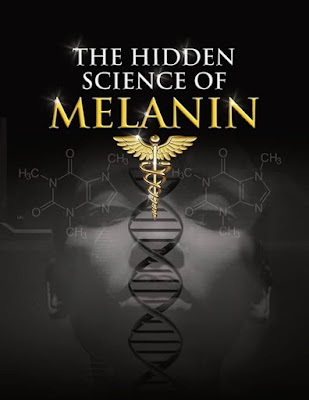
The "melanin 666" phrase appears to be a connection made by some individuals between the concept of melanin, the pigment that gives skin its color, and the number 666, often associated with the Mark of the Beast in religious contexts. This connection is often linked to the idea that carbon, the element of life, has 6 protons, 6 neutrons, and 6 electrons, which can be equated to the number 666.
Here's a breakdown of the ideas surrounding "melanin 666":
Melanin and Carbon:
Melanin is a pigment, and carbon is a fundamental element in the building blocks of life. The connection to 666 is made by some who see a parallel between the atomic structure of carbon (6 protons, 6 neutrons, 6 electrons) and the number 666.
Afrocentric Melanin Theory:
In some Afrocentric circles, a theory exists suggesting that people with higher melanin levels have superior abilities or powers. This theory is considered pseudoscientific.
Symbolism and Interpretation:
The number 666 is often associated with the "Mark of the Beast" in religious texts, representing evil or the Antichrist. Some see the "melanin 666" phrase as a way to reframe this number, perhaps attributing positive or alternative meanings to it.
Clothing and Imagery:
The phrase "melanin 666" is sometimes seen on clothing, such as t-shirts and tank tops, often with imagery related to carbon, melanin, or the Eye of Horus.
Melanin is 6 Protons, 6 Neutrons, and 6 Electrons which creates the carbon Atom which is Melanin. The number 666 relates to the carbon atom, and man. Carbon-12; one of 5 elements in the human DNA is composed of 6 protons, 6 electrons and 6 neutrons, which equates to 666. The English name carbon, comes from the Latin carbo for coal and charcoal, also comes from the French charbon, meaning charcoal. They put fear in our knowledge in attempt to keep us away from what we may not know.
Melanin refines the nervous system in such a way that messages from the brain reach other areas of the body most rapidly in Black people, the Original People. Black infants sit, stand, crawl and walk sooner than whites, and demonstrates more advanced cognitive skills than their white counterparts because of their abundance of Melanin.
Exposure to the sun has the potential to cause premature aging of the skin, as well as various skin cancers. Your ability to withstand the potentially damaging effects of the sun’s ultraviolet radiation depends on the amount of melanin in your skin, which is determined by the number of melanocytes that are active beneath the surface of your skin. Melanin is an effective absorber of light; the pigment is able to dissipate more than 99.9% of absorbed UV radiation.https://crosssides.blogspot.com/
Martial Law? Prepare For The War Against Blacks
https://crosssides.blogspot.com/
May 30, 2025
Song: Killing The Flesh
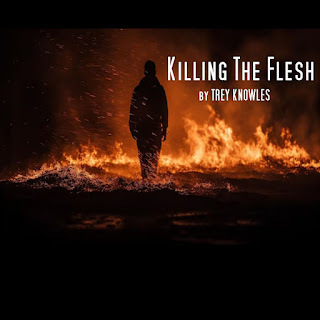
Trey Knowles’ “Killing the Flesh” is a powerful song about resisting the temptations of the flesh by living in the Spirit. It emphasizes the life-changing power of following Jesus Christ, who gives victory over sin and death. Through Him, the pull of the flesh has no control, and spiritual life prevails.
https://crosssides.blogspot.com/Woe to You Law Enforcement
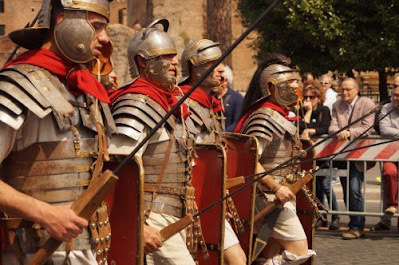
Trey Knowles’ “Woe to You Law Enforcement” delivers a strong warning: if innocent people are harmed by police or mistreated in jail, the responsibility lies with law enforcement—and ultimately with their leader, Donald Trump. Just as Roman soldiers followed orders to crucify Jesus Christ, today’s officers risk becoming the modern equivalent if they blindly follow unjust commands.
https://crosssides.blogspot.com/See The Devils Image

In Trey Knowles' "See The Devil's Image," the author urges a complete rejection of European influence—refusing to work for them, use their currency, or rely on their weapons. If you do this and allow them to reveal their true intentions—through acts of colonization, violence, and imprisonment—you will clearly see their true nature. Knowles asserts they reflect the character of their spiritual father: the devil. He describes this figure as a murderer from the beginning, devoid of truth, and the originator of lies—lying comes naturally to him, as it is his native tongue.
Based on John 8:44
May 29, 2025
A Woman Is Free
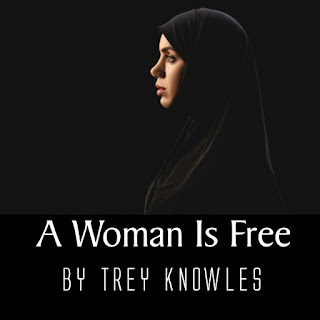
In "A Woman is Free," Trey Knowles emphasizes that God gave women free will, and no man—especially one who is not her husband—has the right to control her. Since God is above man, a woman should not be forced to cover her head or face if she chooses not to.
https://crosssides.blogspot.com/
Album: Wisdom Calls
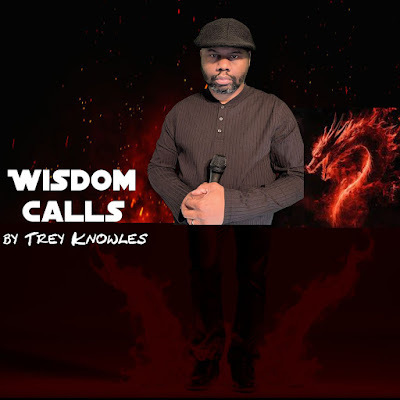
Trey Knowles' album "Wisdom Calls" is a powerful musical journey from darkness and destruction into light and life. Centered on the transformative power of wisdom, the album portrays wisdom as a guiding force that offers protection, blessing, and direction, shielding listeners from harm and leading them toward purpose and clarity.
Trey Knowles - "Wisdom Call" Album Release 5/30/2025
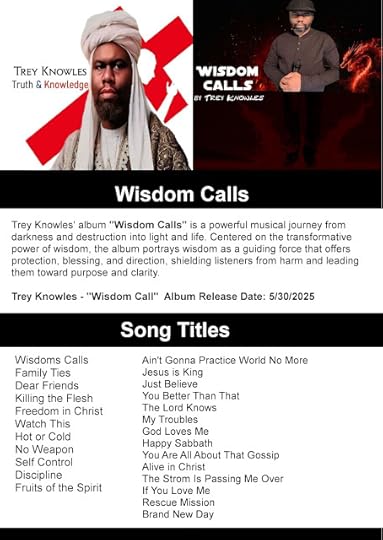
https://crosssides.blogspot.com/
Hugo Black
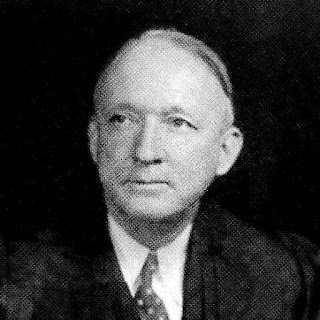
Trey Knowles’ message in "Hugo Black" speaks to young people about how the system can be biased against them, highlighting how some members of the Ku Klux Klan have been appointed as judges, reinforcing systemic injustice.
Hugo Lafayette Black (February 27, 1886 – September 25, 1971) was an American lawyer, politician, and jurist who served as a U.S. Senator from Alabama from 1927 to 1937 and as an associate justice of the U.S. Supreme Court from 1937 to 1971. A member of the Democratic Party and a devoted New Dealer, Black endorsed Franklin D. Roosevelt in both the 1932 and 1936 presidential elections.
Before he became a senator, Black espoused anti-Catholic views and was a member of the Ku Klux Klan. An article from the Pittsburgh Post-Gazette reports that he temporarily resigned from the Klan in 1925 to bolster his senatorial campaign, before quietly rejoining in 1926. In 1937, upon being appointed to the Supreme Court, Black said: "Before becoming a Senator I dropped the Klan. I have had nothing to do with it since that time. I abandoned it. I completely discontinued any association with the organization."
Black served as the secretary of the Senate Democratic Conference and the chair of the Senate Education Committee during his decade in the Senate. Having gained a reputation in the Senate as a reformer, Black was nominated to the Supreme Court by President Roosevelt and confirmed by the Senate by a vote of 63 to 16 (six Democratic Senators and ten Republican Senators voted against him). He was the first of nine Roosevelt appointees to the court, and he outlasted all except for William O. Douglas.
The fifth longest-serving justice in Supreme Court history, Black was one of the most influential Supreme Court justices in the 20th century. He is noted for using historical evidence to support textualist arguments, his position that the liberties guaranteed in the Bill of Rights were imposed on the states ("incorporated") by the Fourteenth Amendment, and his absolutist stance on the First Amendment, often declaring "No law [abridging the freedom of speech] means no law." Black expanded individual rights in his opinions in cases such as Gideon v. Wainwright, Engel v. Vitale, and Wesberry v. Sanders.
Black's views were not uniformly liberal. During World War II, he wrote the majority opinion in Korematsu v. United States (1944), which upheld the internment of Japanese Americans ordered by the president Franklin Roosevelt. During the mid-1960s, Black became slightly more conservative. Black opposed the doctrine of substantive due process (the pre-1937 Supreme Court's interpretation of this concept made it impossible for the government to enact legislation that conservatives claimed interfered with the freedom of business owners),: 107–108 and believed that there was no basis in the words of the Constitution for a right to privacy, voting against finding one in Griswold v. Connecticut (1965). 241–242 He also took conservative positions in cases such as Shapiro v. Thompson, Goldberg v. Kelly, Tinker v. Des Moines, and Cohen v. California where he distinguished between "pure speech" and "expressive conduct".
Early years
Black was born in Harlan, Clay County, Alabama, on February 27, 1886, the youngest of eight children born to William Lafayette Black and Martha (Toland) Black. In 1890 the family moved to Ashland, the county seat. The family came from a Baptist background.
Black attended Ashland College, an academy located in Ashland, then enrolled at the University of Alabama School of Law. He graduated in 1906 with an LL.B. degree, was admitted to the bar, and began to practice in Ashland. In 1907, Black moved to the growing city of Birmingham, where he built a successful practice that specialized in labor law and personal injury cases.
As a consequence of his defense of an African American who was forced into a form of commercial slavery after incarceration, Black was befriended by A. O. Lane, a judge connected with the case. When Lane was elected to the Birmingham City Commission in 1911, he asked Black to serve as a police court judge – his only judicial experience prior to the Supreme Court. In 1912, Black resigned to return to practicing law full time. In 1914, he began a four-year term as the Jefferson County Prosecuting Attorney.
During World War I, Black resigned to join the United States Army. He served in the 81st Field Artillery, and attained the rank of captain as the regimental adjutant. When the regiment departed for France, its commander was ordered to return to Fort Sill to organize and train another regiment, and he requested Black as his adjutant. The war ended before Black's new unit departed the United States, and he returned to law practice. He joined the Birmingham Civitan Club during this time, eventually serving as president of the group. He remained an active member throughout his life, occasionally contributing articles to Civitan publications.
In the early 1920s, Black became a member of the Robert E. Lee Klan No. 1 in Birmingham, and he resigned in 1925. In 1937, after his confirmation to the Supreme Court, it was reported he had been given a "grand passport" in 1926, granting him life membership to the Ku Klux Klan. In response to this news, Black said he had never used the passport and had not kept it. He further stated that when he resigned he completely discontinued his Klan association, that he had never resumed it, and that he expected never to resume his membership.
On February 23, 1921, he married Josephine Foster, with whom he had three children: Hugo L. Black, II (1922–2013), an attorney; Sterling Foster (1924–1996), and Martha Josephine (1933–2019). Josephine died in 1951; in 1957, Black married Elizabeth Seay DeMeritte.
https://crosssides.blogspot.com/May 26, 2025
THE LOST YEARS OF JESUS

What happened to Jesus between the ages of 12 and 30? In this revealing episode of the Black Jesus series, we explore how the Ethiopian Bible holds the missing pieces—details that were erased, hidden, or ignored in modern translations.
Black Jesus uncovers ancient texts preserved only in the Ethiopian Bible, shedding light on Jesus’ early teachings, travels, and spiritual development. These lost years carry powerful truths that change everything we thought we knew.
For centuries, the Ethiopian Bible has preserved stories the West kept buried—stories that align with the mission and message of Black Jesus. Now it's time to reclaim this knowledge and understand why the world was never meant to know it.
!function(r,u,m,b,l,e){r._Rumble=b,r[b]||(r[b]=function(){(r[b]._=r[b]._||[]).push(arguments);if(r[b]._.length==1){l=u.createElement(m),e=u.getElementsByTagName(m)[0],l.async=1,l.src="https://rumble.com/embedJS/u2kzfpi&qu..., document, "script", "Rumble");Rumble("play", {"video":"v6rq9d1","div":"rumble_v6rq9d1"});https://crosssides.blogspot.com/Unleashing the Police
Trump's Plan to 'Unleash' Police Risks More Abuses of Everyone's Rights
President Donald Trump's executive order empowering local cops will create bad incentives that could prove costly for law-abiding citizens.

It wasn't a surprise when President Donald Trump penned his recent executive order that calls "for cities to unleash high-impact local police forces." In 2017, the president told a police audience about handling crime suspects: "When you see these thugs being thrown into the back of a paddy wagon. You just see them thrown in—rough. I said, 'Please don't be too nice.'"
The official line was that he was just joking, but even some police officials were uncomfortable with making light of police brutality. In the ensuing years, Trump's rhetoric has only gotten worse. His recent use of the word unleashing wasn't by accident. Unleash means "to let happen or begin something powerful that, once begun, cannot be controlled."
The purpose of the Constitution is to put the leash on the government and its agents. In the Declaration of Independence, colonists complained that the British king "sent hither swarms of officers to harass our people, and eat out their substance." Police officers are the front line between the government and the people—and few others have such power to deprive us of our liberties and lives.
Many conservatives applauded the order, arguing that he's merely empowering police to do their jobs. But police and prosecutors have plenty of tools. Similarly, this administration has mocked the constitutional process of due process, whereby the accused get their day in court. That protects the innocent more than the guilty by simply requiring the government to prove its case.
As someone who has covered police-abuse cases, I can guarantee that officers make mistakes, can be overly aggressive, and on occasion are corrupt. After the 1980s-era War on Drugs, police often have used tactics more appropriate to an occupying military force rather than to civilian police officers. If you think police should be unrestrained, get back to me after a SWAT team gets the wrong address and invades your house instead.
This is not about letting police do their jobs. Let's say a President Kamala Harris or Gavin Newsom—or whichever potential Democratic politician keeps you awake at night—issued an executive order calling for the feds to "unleash high-impact" Internal Revenue Service, Alcohol, Tobacco, and Firearms, or Environmental Protection Agency officers. Would you say, "That's great, they're just cracking down on tax cheats, illegal guns, and environmental scofflaws"?
Of course not. You'd instead fear they are going to tread on the rights of honest taxpayers, legitimate gun owners, and law-abiding business owners. You'd believe the purpose of the executive order would be political. In 2023, for instance, a Republican-controlled House subcommittee called on the IRS to end "unannounced field visits" because they believed the agency was targeting conservative groups, abusing its power, and harassing ordinary citizens.
I expect this argument to fall on deaf ears, given the inconsistent positions taken by members of each political tribe. As an aside, I saw a pickup truck with a "don't tread on me" flag bumper sticker and one of those blue-striped flags symbolizing support for police. Who, exactly, does the driver think will tread on his rights? We're all supportive of police who honestly and legally use their authority to battle crime, but only the most naïve person would believe that unleashing them from legal constraints will only hobble gang-bangers and felons.
In many ways, police have already been unleashed from reasonable limits. Consider the issue of civil asset forfeiture, whereby police officers, FBI agents, and other law enforcement officials take the homes, cars, and cash of people who have never been accused of a crime. That also started with the War on Drugs. Federal officials argued that the best way to stifle criminal gangs was to take their assets.
That's a fair point, provided it's bound by normal, legal standards—i.e., forcing the government to prove an underlying crime before engaging in a taking. Unfortunately, police take what they want based on their own claims—and then force the owners to prove their innocence to reclaim their life's savings. This is what unleashing looks like in the real world.
As one of the founders of that program has argued, it "has turned into an evil itself, with the corruption it engendered among government and law enforcement coming to clearly outweigh any benefits." And that abuse only involves our property. Imagine the abuses that will result when police are free to use whatever violence they deem necessary—and when those who abuse their powers are given even more protections from accountability.
Sure, most police officers are honorable, which makes it all the more appalling to incentivize bad ones. "Bad cops are the product of bad policy," wrote Radley Balko, author of Rise of the Warrior Cop. "And policy is ultimately made by politicians. A bad system loaded with bad incentives will unfailingly produce bad cops." These Trump actions provide all the wrong incentives—and law-abiding citizens have much more to fear from them than criminals.
https://crosssides.blogspot.com/



